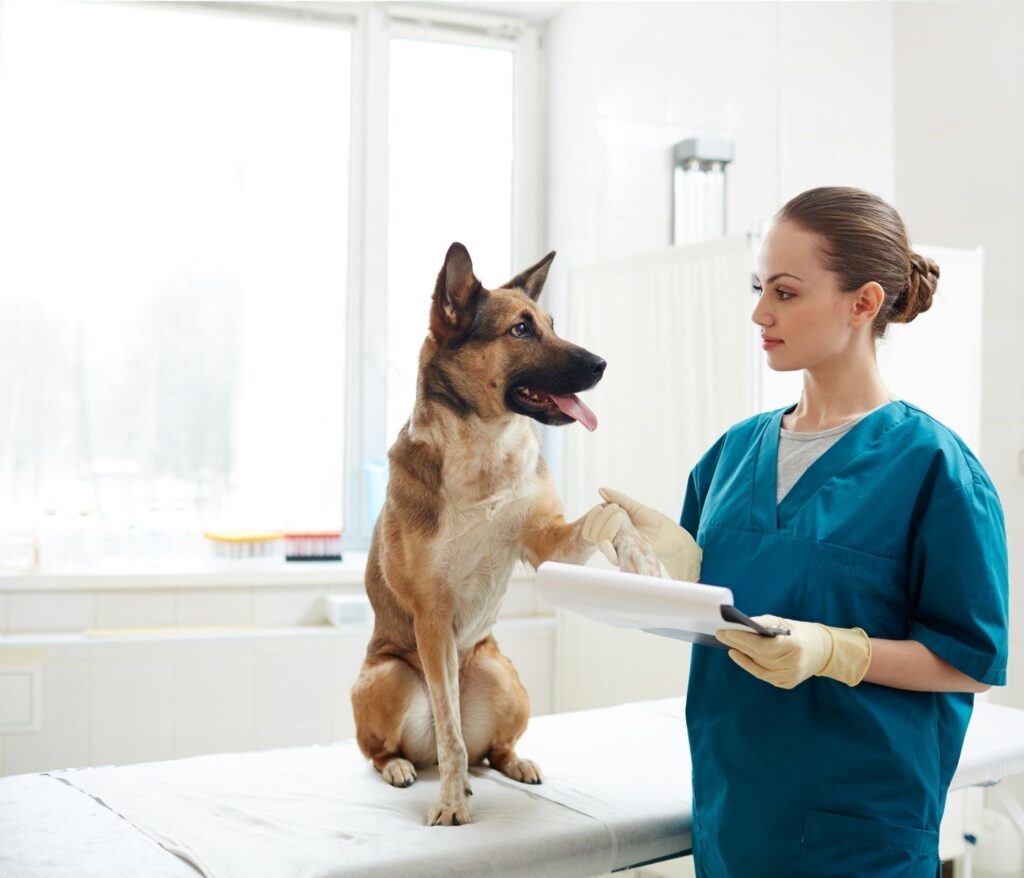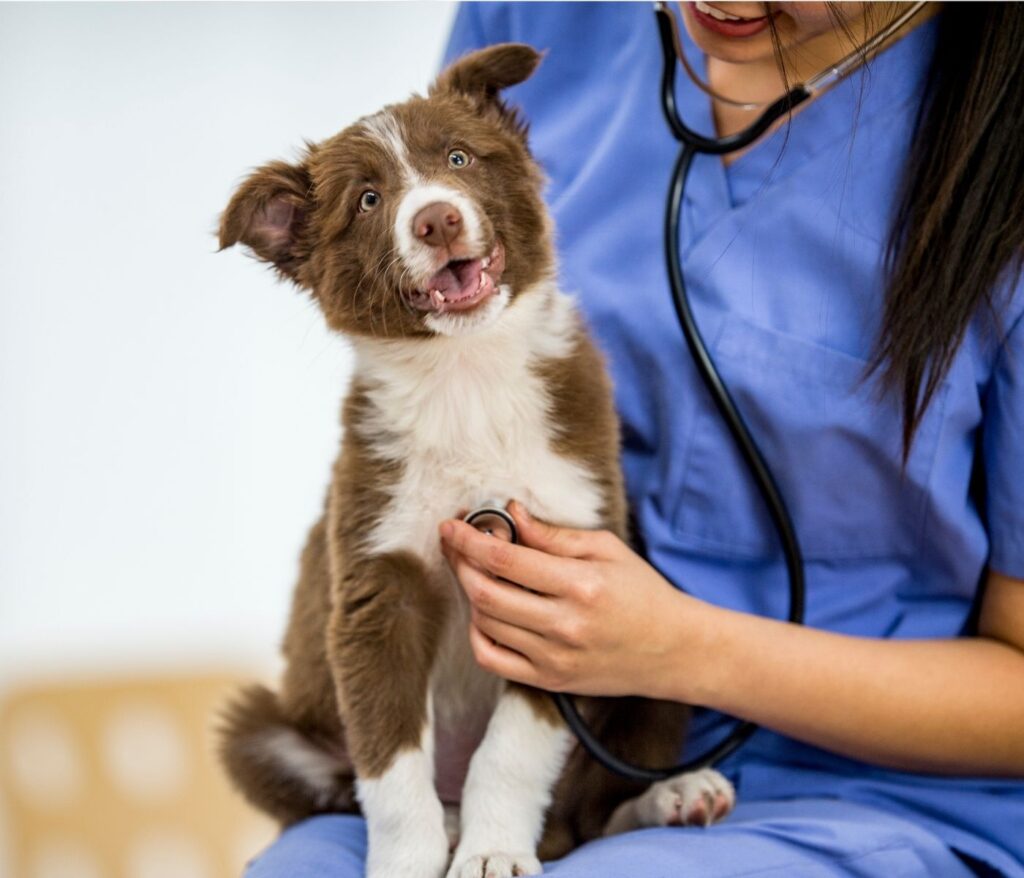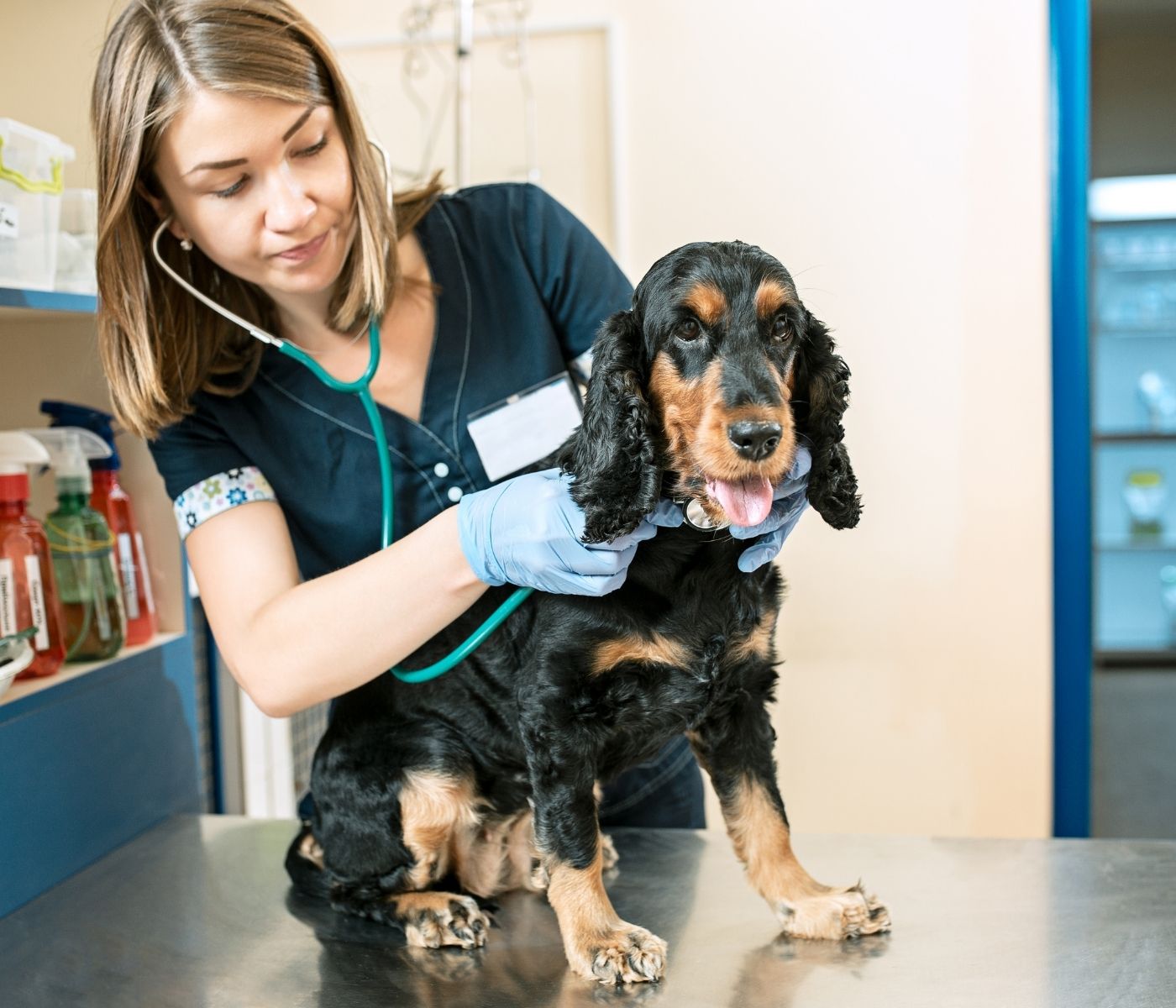Regular vet check-ups for your dog are paramount in ensuring their well-being and longevity. Like humans, dogs require routine medical attention to prevent, detect, and manage potential health issues.
These check-ups ensure that your furry friend leads a happy and healthy life. By scheduling regular visits to the vet, you can address any concerns early on, receive professional guidance on nutrition and preventive care, and establish a strong foundation for your dog’s long-term health.
Regular vet check-ups for your dog cannot be overstated, as they provide invaluable opportunities for early detection of health problems, timely vaccinations, and personalized advice tailored to your dog’s specific needs.
Overall, prioritizing these check-ups contributes significantly to your dog’s well-being and quality of life.
Why Is It Important To Bring Your Dog To The Vet?

Routine vet checkups are essential for maintaining your dog’s health and well-being. These regular visits to the veterinarian play a crucial role in preventing, detecting, and managing any potential health issues your furry friend may face.
Here are several reasons why routine vet checkups are essential:
Early Detection of Health Issues:
Regular vet checkups allow veterinarians to closely monitor your dog’s health status. They can detect signs of illness or underlying health conditions before they escalate into more severe problems.
Early detection enables prompt treatment, improving the chances of successful outcomes and potentially saving your dog’s life.
Preventive Care:
Prevention is better than cure, and routine vet checkups are essential to preventive care for your dog.
During these visits, veterinarians can administer vaccinations and parasite control measures and recommend preventative treatments tailored to your dog’s needs.
Preventive care measures help protect your dog from various diseases and health threats, ensuring they stay healthy and happy.
Personalized Health Advice:
Each dog has unique nutritional requirements, exercise needs, and health considerations.
Veterinarians provide customized health advice during routine checkups based on your dog’s age, breed, lifestyle, and medical history.
This tailored guidance helps you optimize your dog’s diet, exercise routine, and overall care, promoting optimal health and well-being.
Dental Health Assessment:
Dental problems are common in dogs and can lead to serious health issues if left untreated.
Routine vet checkups include a dental health assessment, allowing veterinarians to examine your dog’s teeth and gums for signs of dental disease, such as tartar buildup, gingivitis, or tooth decay.
Early intervention and dental care recommendations can help maintain your dog’s oral health and prevent painful dental issues.
Monitoring of Vital Parameters:
Veterinarians assess vital parameters during routine checkups, including your dog’s weight, body condition, heart rate, and respiratory rate.
Monitoring these parameters over time helps track your dog’s overall health status and identify any changes that may indicate underlying health concerns.
Regular monitoring enables timely intervention and adjustments to your dog’s care plan.
How Often Should I Visit The Vet With A Dog?

Determining how often to visit the vet with your dog depends on various factors, including their age, health status, and specific needs. However, as a general guideline, it is recommended to schedule regular veterinary checkups at least once a year for most dogs.
These routine visits are crucial for maintaining your dog’s health and well-being.
Puppies:
In the first year of life, puppies require more frequent veterinary visits to ensure they receive essential vaccinations, deworming, and preventive care.
Typically, puppies should visit the vet every 3-4 weeks until they are about 16 weeks old.
Afterwards, they may need additional visits for booster vaccinations and spaying/neutering procedures.
Adult Dogs:
Once your dog reaches adulthood (around 1-2 years old), annual veterinary checkups are typically sufficient for maintaining their health.
During these visits, veterinarians can assess your dog’s overall health, administer necessary vaccinations, and provide preventive care recommendations tailored to their needs.
However, senior dogs or those with underlying health conditions may require more frequent visits.
Senior Dogs:
As dogs age, they become more susceptible to age-related health issues, such as arthritis, dental disease, and organ dysfunction.
Senior dogs (usually seven years and older) may benefit from more frequent veterinary checkups every six months to monitor their health status closely.
These visits allow veterinarians to detect and manage any age-related concerns promptly.
Specific Health Concerns:
If your dog has specific health concerns or chronic medical conditions, your veterinarian may recommend more frequent checkups to manage them effectively.
These may include monitoring blood work, adjusting medication dosages, or implementing specialized care plans to ensure your dog’s optimal health and comfort.
Preparing Your Dog for a Veterinary Visit:

Preparing for a veterinary visit with your dog is essential to ensure a smooth and stress-free experience for you and your furry companion. Here are some steps you can take to prepare:
Schedule the Appointment: Call your veterinarian’s office for a convenient appointment time. Choose a time when your dog is typically calm and well-rested to minimize stress during the visit.
Gather Important Information: Have your dog’s medical records, including vaccination history, previous veterinary visit notes, and any medications they take, ready to provide to the veterinarian.
Prepare Your Dog: If your dog is anxious or fearful about visiting the vet, help them become more comfortable by practising handling and gentle restraint at home. Use positive reinforcement techniques like treats and praise to create positive associations with being handled.
Bring Necessary Items: Pack a travel bag with essential items for your dog, including their leash, collar or harness, favourite toys, treats, and a blanket or towel for comfort. Consider bringing a towel to line the car seat if your dog is prone to car sickness.
Update Identification: Ensure that your dog’s identification tags and microchip information are up to date with your current contact information. This is important in case your dog separates from you during the visit.
Plan for Payment: Be prepared to pay for the veterinary services rendered. Check with your veterinarian’s office in advance to understand their accepted payment methods and any potential costs associated with the visit.
Consider Transportation: If your dog is not accustomed to car rides or gets anxious during travel, make the journey as comfortable as possible. Consider using a secure travel crate or seat belt harness to keep your dog safe in the car.
Arrive Early: Arrive at the veterinary clinic early to allow time for check-in procedures and to give your dog a chance to acclimate to the surroundings before the appointment begins.
What to Expect During Your Pet’s Veterinary Examination
A pet checkup, also known as a veterinary examination, involves a thorough assessment of your pet’s overall health and well-being by a qualified veterinarian.
During this comprehensive evaluation, veterinarians examine various aspects of your pet’s health to detect potential issues and provide appropriate care.
Here’s what a typical checkup for pets involves:
Physical Examination:
The veterinarian will start by conducting a physical examination of your pet, which includes checking their body condition, weight, coat condition, skin health, and overall appearance.
They will also assess your pet’s vital signs, such as temperature, heart rate, and respiratory rate.
Medical History Review:
The veterinarian will review your pet’s medical history, including any previous illnesses, surgeries, vaccinations, and medications.
Accurate information about your pet’s health history helps the veterinarian understand their unique health needs and identify any ongoing or potential health concerns.
Vaccinations and Preventive Care:
Depending on your pet’s age, lifestyle, and vaccination status, the veterinarian may administer or recommend necessary vaccinations to protect against common diseases.
They may also discuss preventive care measures, such as flea and tick control, heartworm prevention, and deworming, to keep your pet healthy and protected.
Dental Examination:
Dental health is essential to your pet’s overall well-being. The veterinarian will examine your pet’s teeth and gums for signs of dental disease, such as tartar buildup, gum inflammation, or tooth decay.
They may recommend dental cleanings or guide at-home dental care to maintain your pet’s oral health.
Laboratory Tests:
In some cases, the veterinarian may recommend diagnostic tests, such as blood work, urinalysis, faecal examination, or imaging studies, to assess your pet’s internal health and detect any underlying medical conditions.
These tests help provide valuable insights into your pet’s overall health status and aid in early disease detection.
Nutritional Counseling:
Proper nutrition is vital for your pet’s health and longevity. The veterinarian may offer nutritional counselling tailored to your pet’s age, breed, weight, and dietary needs.
They can recommend high-quality pet foods, feeding schedules, portion sizes, and nutritional supplements to support your pet’s optimal health and nutrition.
Behavioral Assessment:
Behavioral issues can significantly impact your pet’s quality of life and overall well-being. The veterinarian may discuss your behavioral concerns and guide behavior management, training techniques, and environmental enrichment strategies to address them effectively.
Conclusion
In conclusion, regular vet check-ups for your dog are essential for maintaining their overall health and well-being. These routine veterinary visits are crucial in preventing, detecting, and managing any potential health issues your furry friend may face.
Through regular check-ups, veterinarians can assess your dog’s health status, administer necessary vaccinations, provide preventive care measures, and offer personalized health advice tailored to your dog’s needs.
Early detection of health issues, preventative care interventions, and timely medical treatment can significantly impact your dog’s quality of life and longevity.
By prioritizing regular vet check-ups, you’re ensuring that your dog receives the care they needs and fostering a strong bond of trust and partnership with your veterinarian.
Investing in your dog’s health through regular veterinary care is a testament to your commitment to providing them with a happy, healthy, and fulfilling life.
